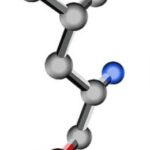 Researchers at Otsuka Pharmaceutical Co., Ltd., in Saga, Japan studied the effects on muscle soreness, muscle damage and inflammation during an intensive training program.
Researchers at Otsuka Pharmaceutical Co., Ltd., in Saga, Japan studied the effects on muscle soreness, muscle damage and inflammation during an intensive training program.
First, the details.
- 12 long-distance runners participated in 2 intensive 3-day training periods and were randomly assigned to a drink during each training period.
- A drink containing branched-chain amino acid (BCAA 0.8% in a 3.5% carbohydrate solution; 2,500 mL/day)
- An isocaloric placebo drink
- All participants completed the same training program (total running distance: males: 86 km [53 miles], females: 64 km [40 miles]), and ate the same meals during the training period.
- Body muscle soreness and fatigue were measured in the morning before and during the training period using a Visual Analogue Scale.
- Blood levels of creatine kinase (CK), lactate dehydrogenase (LDH), and granulocyte elastase (GEL) were measured as indicators of muscle damage and inflammation before and after the training period.
And, the results.
- Muscle soreness and fatigue during the BCAA training period were significantly lower than the placebo trial (-32% and -24%, respectively).
- CK, LDH, and GEL blood levels after the BCAA training program were significantly lower than those in the placebo group (-21%, -6%, and -15%, respectively).
The bottom line?
The authors concluded, “BCAA supplementation during an intensive training program effectively reduces the muscle soreness and fatigue sensation, and that the perceived changes could be attributed to the attenuation of muscle damage and inflammation.”
2/21/10 21:36 JR